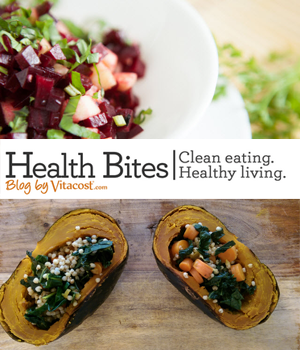The Link Between Dairy Products and Prostate Health
I’m very excited today to share with you a special guest post from a highly reputable website created by Dr. Joseph Mercola. He is board-certified in family medicine and practices traditional and natural medicine. My guest blogger today is Adrienne who write for http://www.mercola.com/.
There is reason to believe that consuming pasteurized dairy products can promote poor prostate health. In an analysis conducted by researchers from the University of Hawaii, they discovered that consumption of low-fat or non-fat milk increased the risk of the formation of tumors. The same results were seen with whole milk.
There are other studies also pinpoint the relation between prostate health and certain dairy products. For example, a 10-year study involving 21,000 male doctors – who consumed at least 2.5 servings of dairy food daily – found that they had a higher risk of contracting prostate-related problems than doctors who ate less than half a serving.
Theories on the Link of Pasteurized Milk to Poor Prostate Health
One theory states that high levels of calcium impairs the enzyme responsible for converting vitamin D to its active form (1,25 dihydroxyvitamin D). Vitamin D contributes to many of your body functions, including your immune function.
Many commercial or pasteurized milk brands contain dangerous synthetic growth hormones. Recombinant bovine growth hormone (rBGH) is one of the largest-selling dairy animal drug in the United States. It mimics natural bovine somatotropin (BST), a hormone produced in the pituitary glands of cows. rBGH is used to stimulate milk production in cows.
RBGH-filled milk contains high levels of insulin-like growth factor-1 (IGF-1). Increased levels of IGF-1 in adults can contribute to chronic diseases.
The Difference Between Pasteurized Milk and Raw Milk
Pasteurization is a heating process that’s used to sterilize dairy products. While it is successful in eliminating harmful bacteria and pathogens, it also neutralizes the beneficial organisms and enzymes in the food.
Pasteurization alters the physical structure of proteins (like casein) in the milk. It changes the shape of amino acids in milk into a foreign protein that your body is not able to break down. The process can also make calcium in the dairy product insoluble.
In 2007, a study cited 25 other studies connecting the increased rates of disease to the consumption of pasteurized milk due to a growth factor called betacellulin found in the whey fraction of milk. This growth factor stimulates the growth of cancerous cells throughout your body.
On the other hand, the nutrients of raw milk are intact. Raw milk also has the beneficial nutrient conjugated linoleic acid (CLA), which helps suppress betacellulin.
How to Support a Healthy Prostate
Regardless of what your age is, it is important to prioritize your prostate health. Certain lifestyle choices can contribute to an unhealthy prostate and raise your risk of health conditions.
There are simple and natural ways to protect your prostate and keep your risk for disease low. These are:
- Increasing your consumption of high-quality, animal-based omega-3 fats
- Exercising regularly
- Modifying your diet by removing processed foods
- Avoiding pasteurized dairy products and switching to organic raw dairy products
- Eating more organic whole foods
- Getting enough sleep
Research also shows that stress can affect your prostate and tumor growth. Being exposed to a trauma or conflict can make you prone to prostate-related problems. The more intense the conflict is or the longer it lasts, the faster a tumor develops.
If you have any emotional baggage, it is best to address it right away. Try using meditation, yoga, or journaling – to help you release tension.
About the Author
Adrienne is a writer for Mercola.com. She recently completed a series of articles on prostate health supplements like saw palmetto and vitamin D. At present, she is researching how multivitamin benefits one’s overall health.
Thanks again Adrienne for this informative article!
Now I want to hear from you. Do you consume dairy regularly or limit it for health purposes?



Thanks for publishing our article, Pam! Hope your readers would like it.
You’re welcome and thank you for this wonderful article! Tons of helpful information for my readers.
I look forward to more awesome guest posts from you :)!